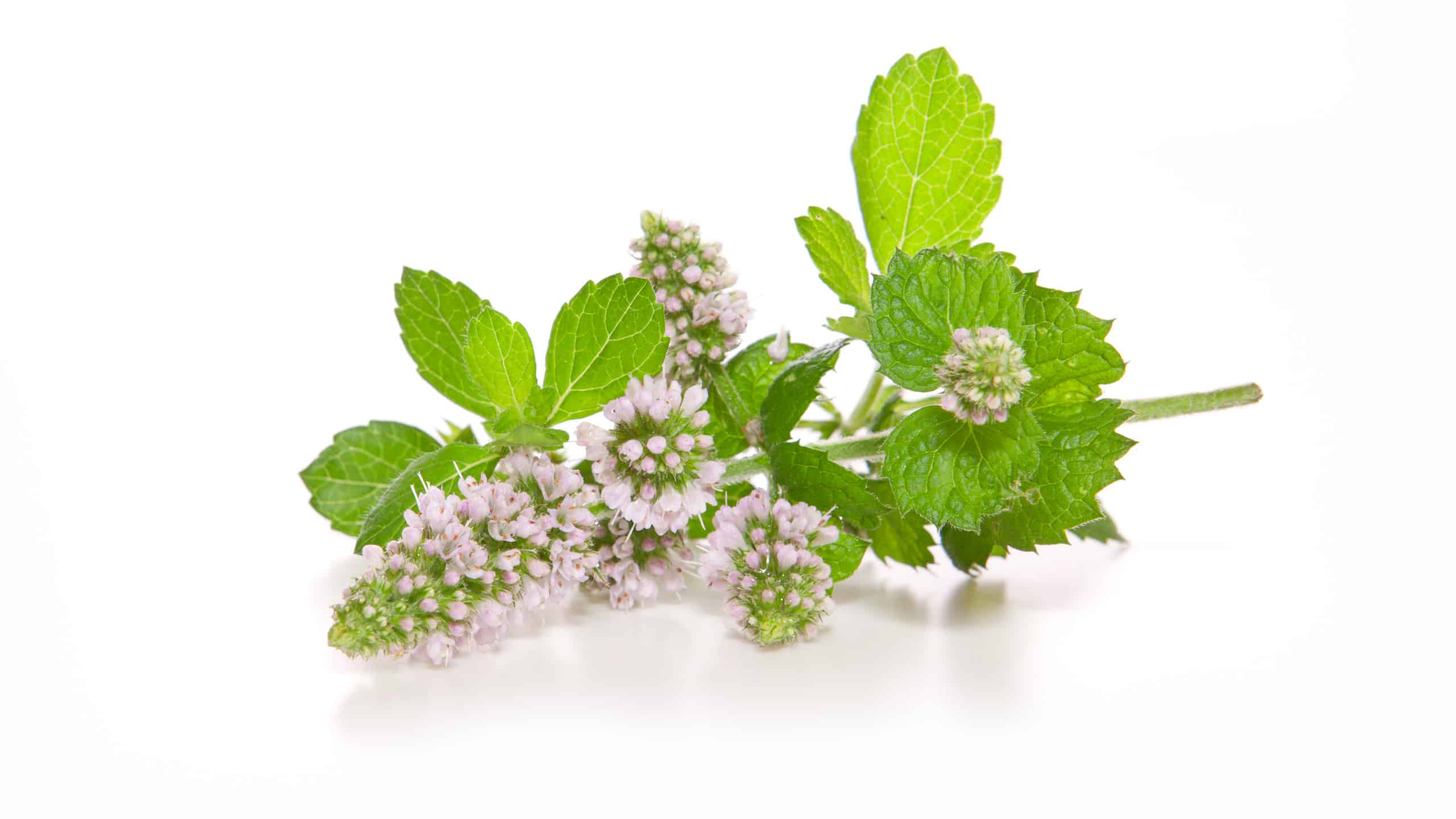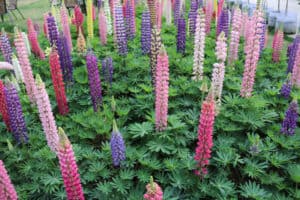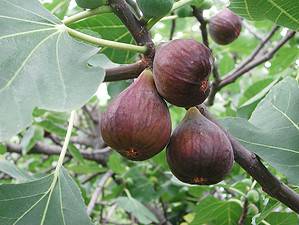Quick Answer:
- Yes! Peppermint does keep the bugs away!
- The strong scent of peppermint drives certain bugs away from the area where peppermint has been placed.
Does peppermint keep the bugs away? Peppermint is a multifaceted herb. From using it in the kitchen to drinking it as tea, using soothing lip balm and various topical creams, to even using its oil in aromatherapy, it’s clear why peppermint is considered one of the most versatile plants and oils in the world.
Peppermint (Mentha × Piperita) originates and is indigenous to Europe and the Middle East and can be traced back thousands of years with different uses and treatments. The spectacular plant is a hybrid of watermint and spearmint and, as a result, contains properties from both.
Peppermint is known for its uses in culinary, cosmetic, herbal, medicinal, and even cleaning properties. But the question remains, does peppermint repel insects?
Does Peppermint Keep the Bugs Away?
Yes! Peppermint does keep the bugs away! Studies show that peppermint oil is a great method of repelling bugs. The strong scent of peppermint drives bugs out and keeps them away from the area where peppermint has been placed.
Truthfully, using peppermint is a great way to rid your home of bugs and keep your home pest-free! Peppermint has menthol properties, and this scent is what repels bugs, as the smell receptors in bugs and rodents cannot take the scent.
While peppermint does not work on all bugs, it does work to repel the following:
- Ants
- Spiders
- Cockroaches
- Fleas
- Ticks
- Beetles
- Moths
- Rodents
- Gnats
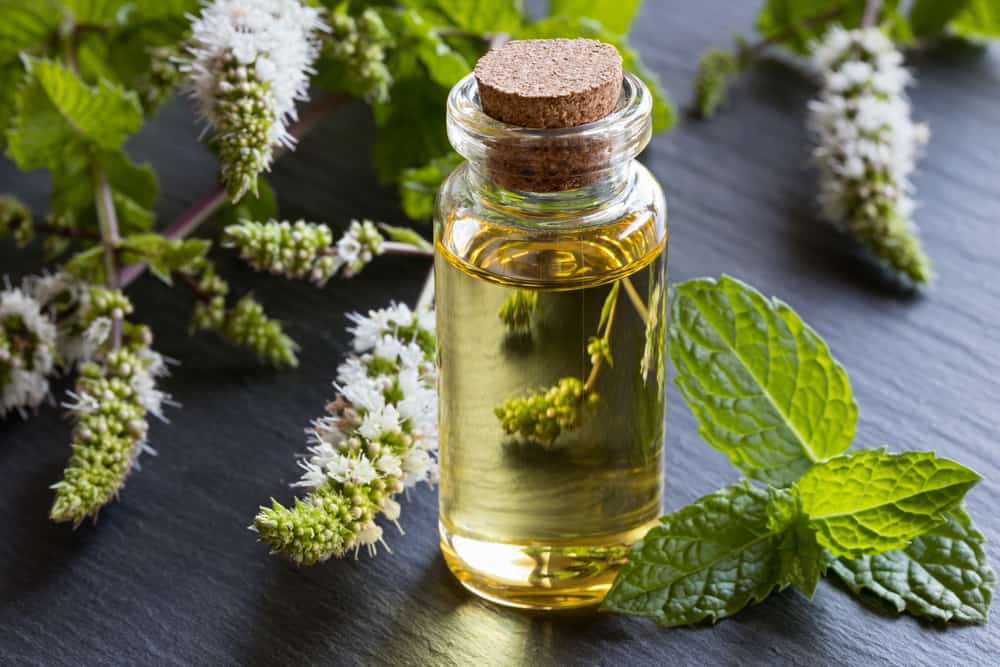
Peppermint is a versatile herb used for its medicinal properties and in self-care products, tea, and cooking.
©Madeleine Steinbach/Shutterstock.com
Benefits of Peppermint
Including its unique flavoring and crisp scent, peppermint has many benefits. It is a versatile plant that produces oil, creams, herbal remedies, teas, and much more. Here are a few of the benefits that using peppermint can provide:
Health Benefits
- Studies show that drinking peppermint tea can help provide short-term relief for those suffering from irritable bowel syndrome (IBS).
- Peppermint has been known to reduce bloating in children and women on their menstrual cycle.
- The smell of peppermint helps to alleviate nausea.
- Drinking peppermint tea or taking encapsulated peppermint can help to boost your focus.
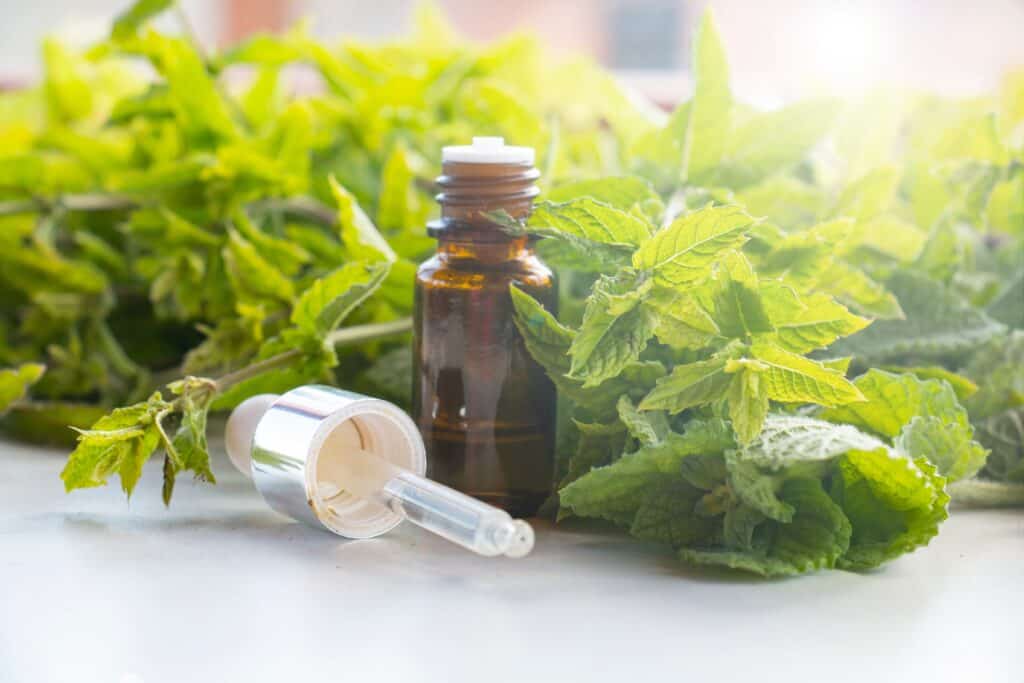
Peppermint has a crisp and clean aroma that can freshen up a room.
©Inga Gedrovicha/Shutterstock.com
Gardening Benefits
- Planting peppermint in your garden is an easy way to attract pollinators while keeping insects and pests away.
- Peppermint plants emit strong menthol scents to insects and animals, so your garden will chase away insects and mice.
Additional Benefits
- Peppermint oil can be used to eliminate fleas and ticks on pets.
- The tea can help your digestive system relax.
- Delicious peppermint tea contains no caffeine and is naturally sweet.
- Peppermint products, like tea, chewing gum, and even plant leaves, help promote fresh breath.
How to Use Peppermint as an Insect Repellent
Peppermint can be used to keep your household free of pests. To use it as a bug-repellent solution, follow the instructions below.
Peppermint solution to use indoors:
- 1 x spray bottle
- ½ cup of water
- 8 ounces of rubbing alcohol
- 1-2 spoons dried peppermint leaves
- Optional: Additional herbs such as lavender or cinnamon
Bring the water to a boil and add in the dried peppermint leaves. Adding other herbs like cinnamon or lavender will help to make the repellent stronger. Let the mixture cool. Strain the leaves, pour the mixture into the spray bottle, add the rubbing alcohol, and shake. The mixture is now ready to use.
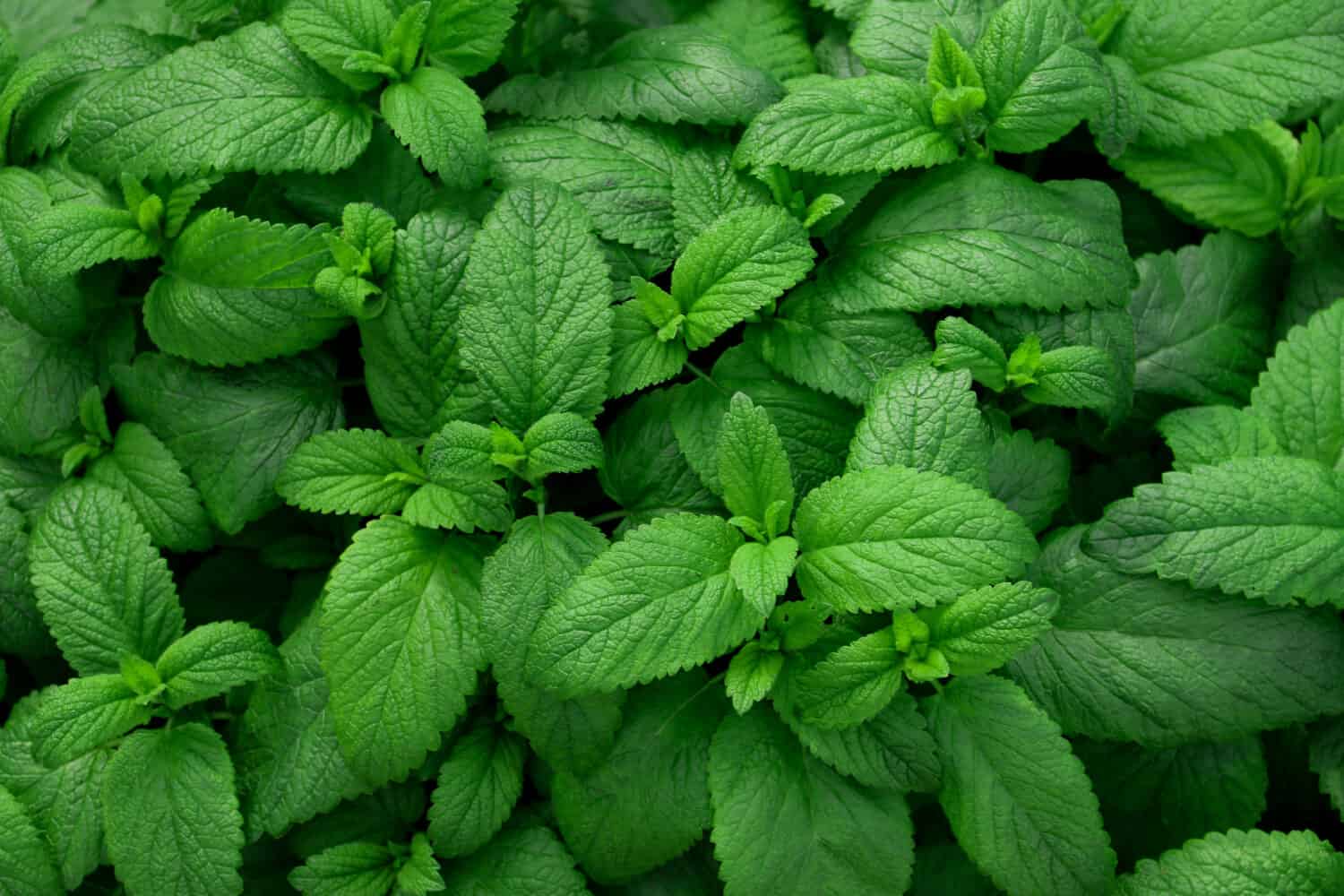
Growing peppermint can attract pollinators to your garden.
©Olesya Myzzz/Shutterstock.com
Peppermint solution to use indoors:
- 1 x spray bottle
- 10 – 15 drops of peppermint essential oil
- 1 cup of water
Add the ingredients to a spray bottle and shake it well. Once the mixture has been shaken, spray it along windows, doorways, and vents. The scent of the peppermint essential oil will give your home a crisp minty scent while chasing the insects and rodents away.
Peppermint solution to use on plants:
- 1 x spray bottle
- 15 drops peppermint essential oil
- 2 cups of water
Using a peppermint bug repellent is easy. Add the mixture to a spray bottle and spritz your plants. The peppermint mixture will repel bugs and give your garden a hint of minty freshness!
Peppermint solution to kill bugs on plants:
- 1 x spray bottle
- 5 – 10 drops of dishwashing liquid
- 15 drops of peppermint essential oil
- 2 cups of water
Adding the dishwashing liquid makes this mixture suffocate insects. This is an effective pesticide to keep bugs away and kill persistent critters.
Caution When Using Peppermint
Peppermint is a very versatile substance. Whether you’ve planted it in your garden, used it in teas or on your skin, or used the aromatic essential oils, it’s clear that this plant is beneficial! However, even with all of its benefits, there are still precautions that you should take when using peppermint.
- Don’t use it on children: Peppermint contains menthol, which can negatively affect young children’s breathing.
- Allergy concerns: Before using any peppermint, you should ensure that you and anyone in your immediate surroundings are not allergic to it.
- Staining: When using peppermint essential oil in cleaning, be sure not to use it near fabric or wood, as peppermint has been known to leave an oil stain on these surfaces.
- Negative reaction: Peppermint can react negatively with other medications and should only be used under the supervision of a doctor.
- Heartburn: Peppermint is used to soothe the body in many ways. However, it can cause heartburn if used incorrectly or in conjunction with certain medications.
Avoid using peppermint if you are suffering one of the following conditions, as it can cause harm:
- Hiatus Hernia
- Gastroesophageal reflux disease, also known as GERD
- Arrhythmia
- Hemolytic Anaemia
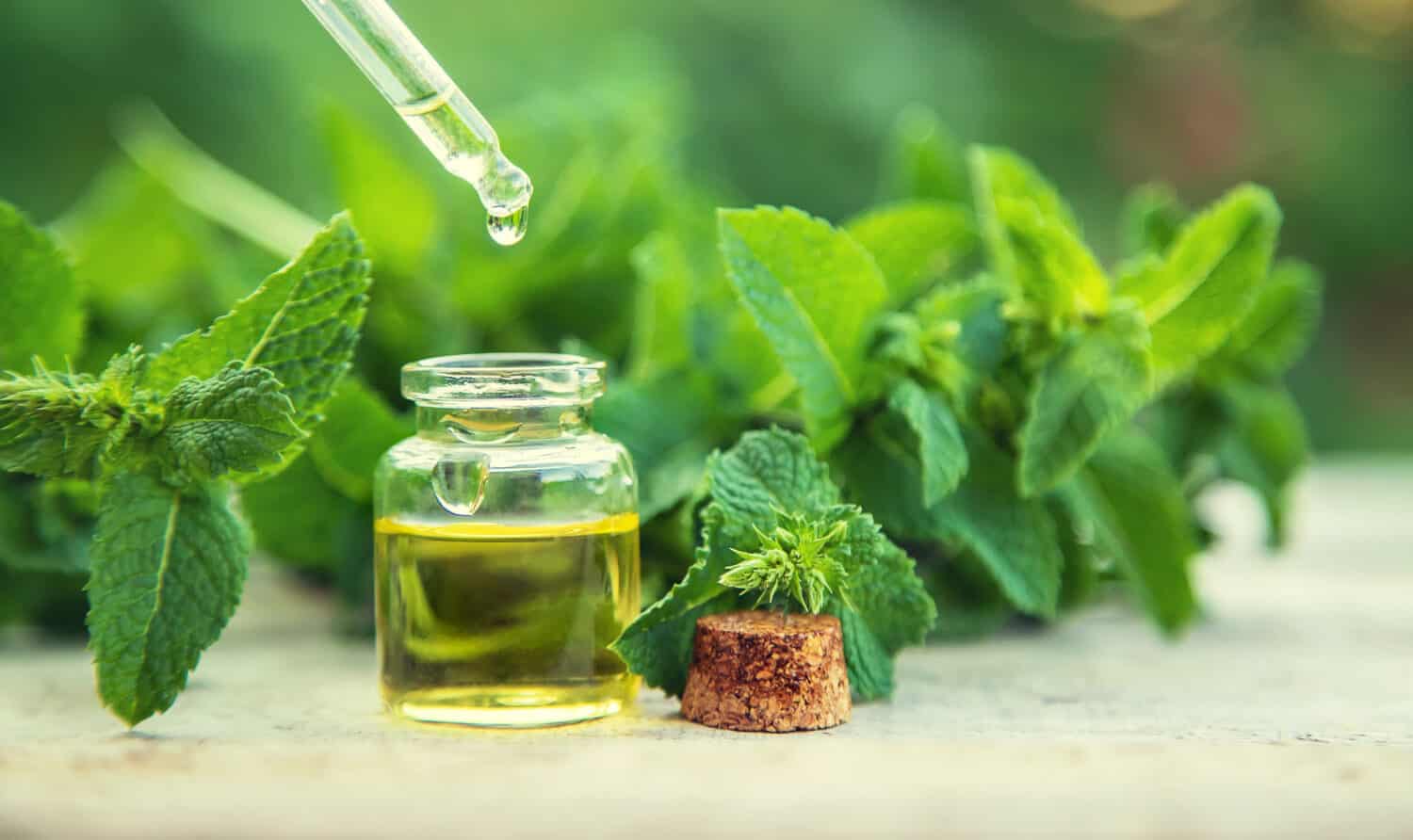
Peppermint can be traced back thousands of years and is indigenous to the Middle East and Europe.
©Tatevosian Yana/Shutterstock.com
Natural Bug Repellents
Peppermint is not the only natural bug repellent you can use. If you want to avoid the harsher chemicals, these natural repellents might be the one for you:
- Diatomaceous Earth: Diatomaceous Earth has been an excellent repellent for stubborn bugs like cockroaches, ants, and scorpions. Safe to use indoors and around both humans and pets, all you need to do is spread the white powder around the foundations of your home. While safe for mammals, the powder is deadly to insects with exoskeletons.
- Plants: Adding not only to the aroma of your garden, adding plants like lavender, mint, garlic, rosemary, lemongrass, and so many more are a fantastic way to give your garden a burst of color, fragrance, and bug protection at the same time!
- Neem Oil: Neem oil is the perfect way to prevent bugs from infesting your home and garden. Neem oil is a solution that can affect bugs during any stage of their life, making it the perfect organic insecticide for stopping infestations in their track.
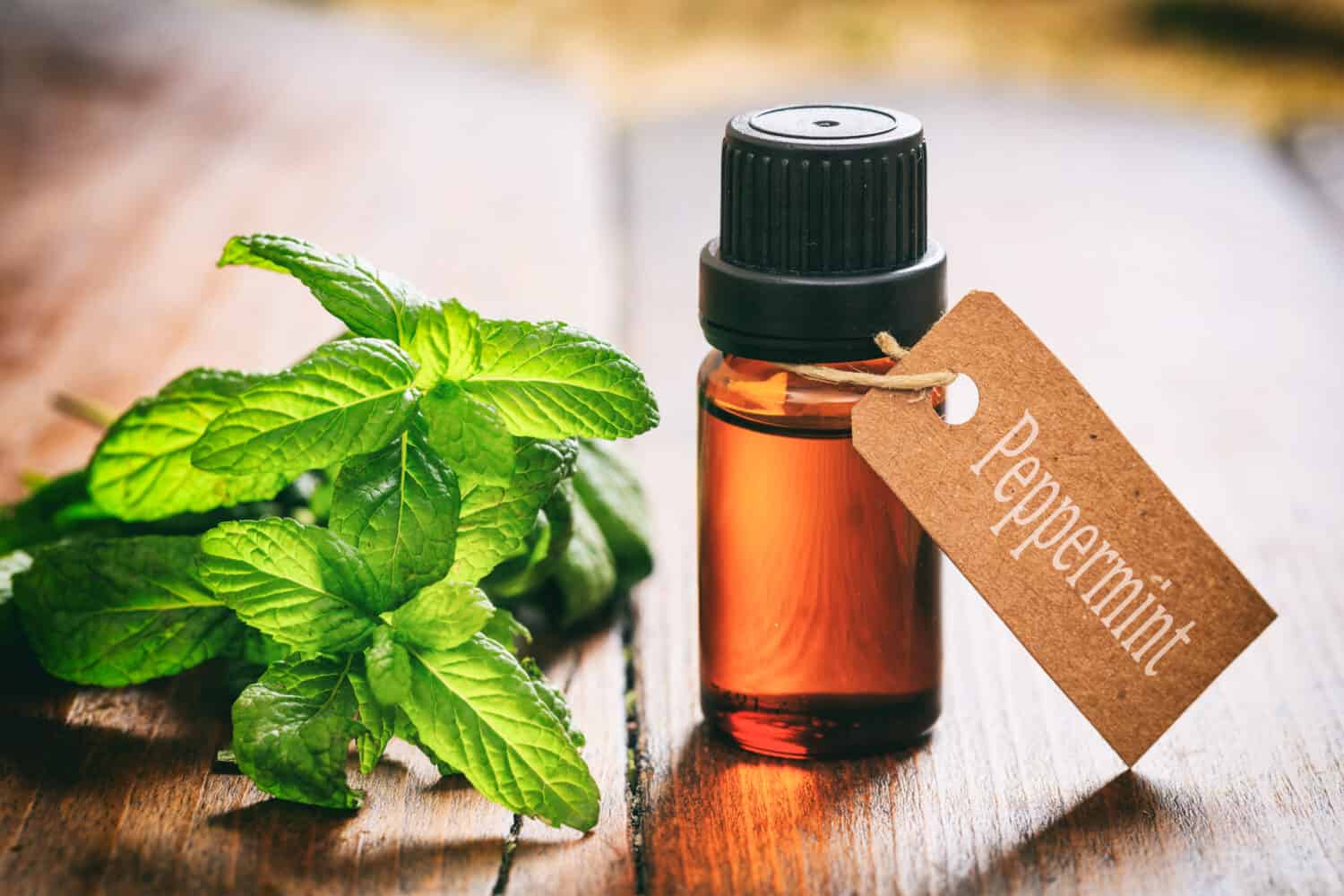
Peppermint essential oil is not only a great ingredient that will keep bugs away. The scent can liven up a room.
©rawf8/Shutterstock.com
Alternative Solutions
If using natural solutions has not worked out for you, you can try the following solutions to keep the bugs at bay:
- Regularly vacuum
- Avoid having damp areas in your home
- Use pesticides and insecticides under the care of professionals
- Call your local pest control specialist
How To Keep Bugs From Invading Your Home
Keeping your home free from flying and crawling critters is easier said than done, especially in the summer. Here are a few easy ways you can help guard your home against insects:
- Add screens to your windows and doors. In the hotter months, it can be tempting to leave windows or doors open to allow fresh air to filter into your home, and this is one of the ways insects can enter the house! Screens allow you to have fresh air without sacrificing your bug-free zone.
- Use caulk to seal openings. You can use caulk if your home has cracks or gaps you want to be sealed. Caulk is a filler and sealant that is waterproof and relatively inexpensive.
- Wash the recyclables. Believe it or not, being green could attract insects to your home. So before you set your recyclables down, quickly wash them to ensure your recycling is not drawing bugs.
Thank you for reading! Have some feedback for us? Contact the AZ Animals editorial team.

